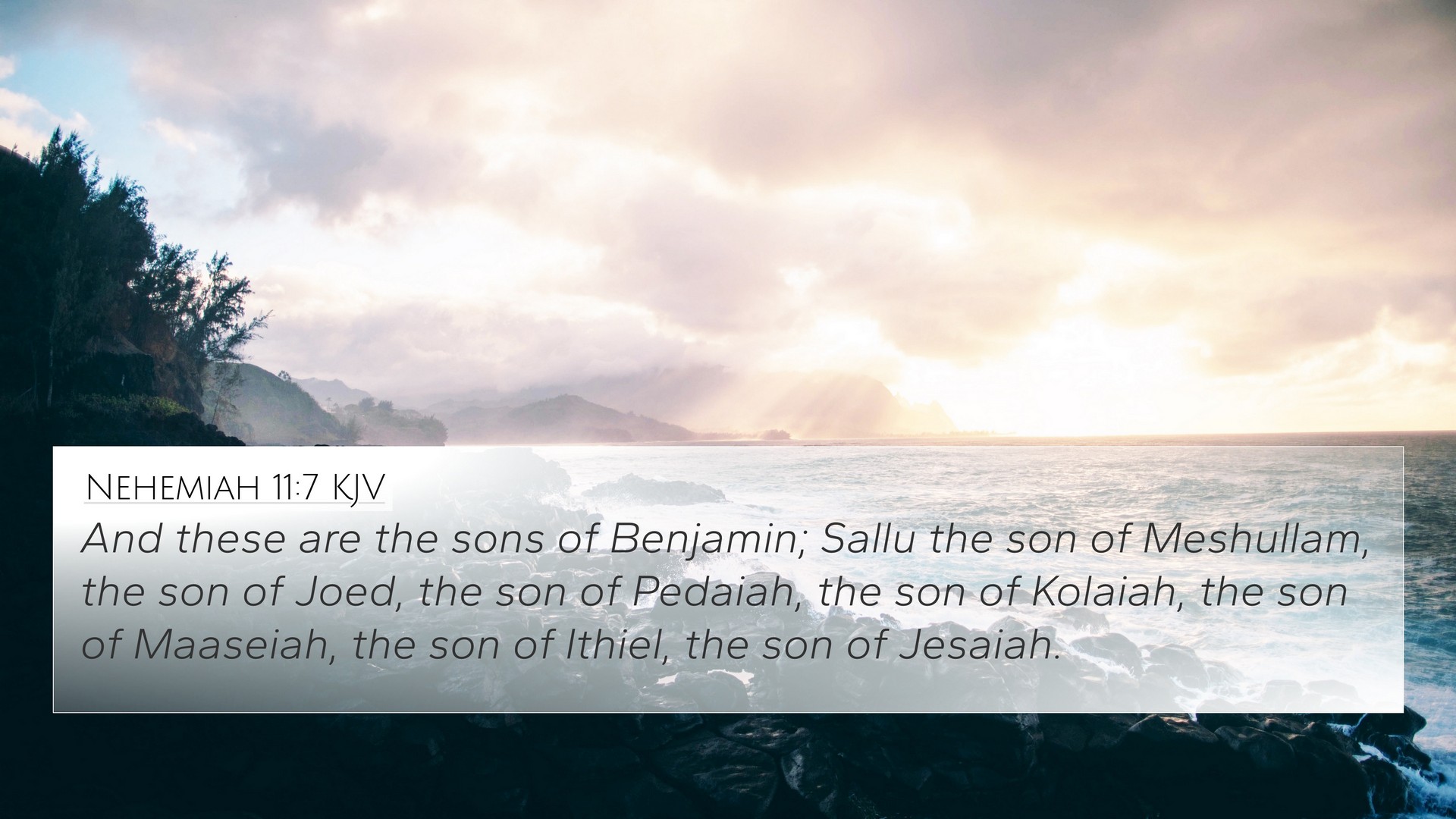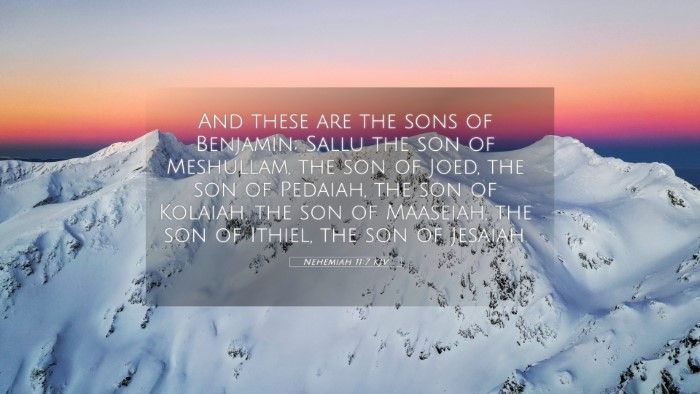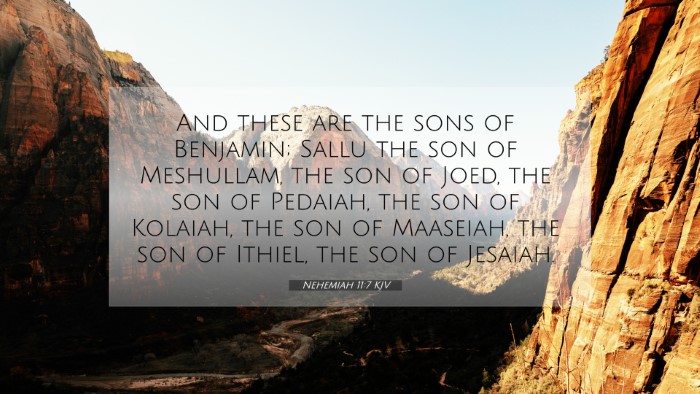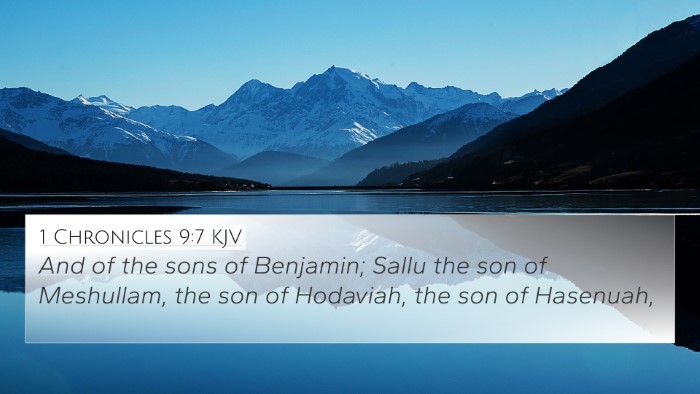Understanding Nehemiah 11:7
Nehemiah 11:7 states:
"And these are the children of Benjamin: Salu the son of Meshullam, the son of Joed, the son of Pedaiah, the son of Kolaiah, the son of Maaseiah, the son of Ithiel, the son of Jeshaiah." (Nehemiah 11:7, KJV)
This verse presents a genealogical record that conveys the significance of the tribe of Benjamin in the post-exilic restoration of Jerusalem. Below, we summarize insights from various public domain commentaries:
Commentary Insights
-
Matthew Henry:
Matthew Henry emphasizes the importance of names and lineage in this passage. He explains that each name represents a family that contributed to the rebuilding of Jerusalem. The careful recording of these descendants reflects the integrity of Nehemiah’s leadership and the organized efforts to repopulate the city.
-
Albert Barnes:
Albert Barnes notes that Benjamin, as one of the tribes of Israel, had a significant role in the history of Israel. He points out that the mention of Benjamin here highlights the assurance that God’s promises to His people are still fulfilled, as the descendants of the tribes represent the continuity of God’s covenant with Israel.
-
Adam Clarke:
Adam Clarke provides insight into the socio-political context of the time, suggesting that the return of the Benjaminites to Jerusalem was crucial for its restoration as a city and a religious center. He also discusses the implications of these records for the validation of the priestly and Levitical orders which relied on these genealogies.
Related Themes and Cross-References
This passage richly connects with other biblical narratives, emphasizing the theme of restoration, lineage, and God's faithfulness. Here are some relevant cross-references:
- 1 Chronicles 9:3: Discusses the return of the Benjaminites to Jerusalem.
- Ezra 2:36-39: Mentions the number of priests and their families returning to Jerusalem.
- Zechariah 1:12: Refers to God's concern for Zion and the cities of Judah after the structures were in ruins.
- Jeremiah 30:18: Promises restoration to the cities of Judah and Jerusalem.
- Isaiah 11:13: Speaks to the jealousy of Ephraim and the dividing of the tribes, relevant to the unity theme among the tribes.
- Luke 2:4: Mentions Joseph going to Bethlehem to be registered, showing the importance of lineage in the New Testament.
- Romans 11:1: Paul asserts that God has not rejected His people, referring to the continuation of God's plan with Israel.
Applications in Cross-Referencing
Nehemiah 11:7 can facilitate a broader understanding through various cross-referencing methods:
- Bible Concordance: Use it to locate other verses mentioning the tribe of Benjamin and its significance.
- Bible Chain References: Trace through related genealogies in both Old and New Testaments.
- Cross-Reference Bible Study: Compare themes of restoration across different passages.
- Identification of Connections: Look for links between the genealogies in Nehemiah, Ezra, and Chronicles, revealing the continuity of God's people.
Conclusion
The genealogies in Nehemiah serve not only as historical records but also as affirmations of God's ongoing covenant with His people. By utilizing cross-references between these verses, individuals can gain deeper insights into the spiritual narrative that runs throughout Scripture. Consider utilizing tools for Bible cross-referencing for a more in-depth study of how these connections enrich understanding.



